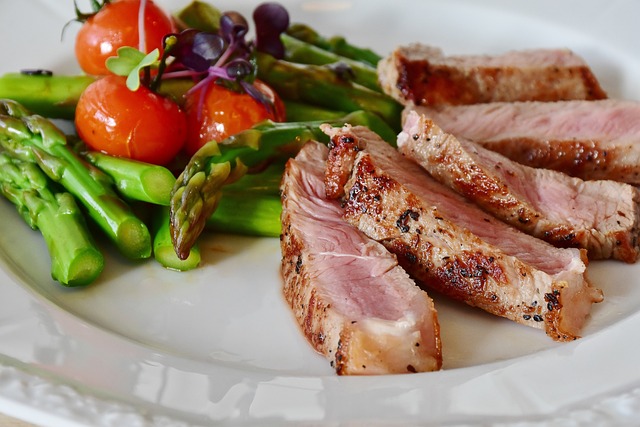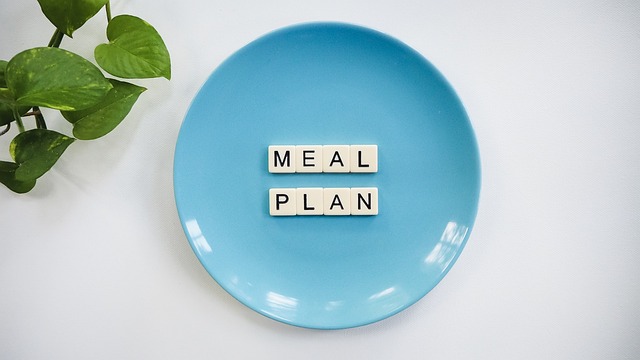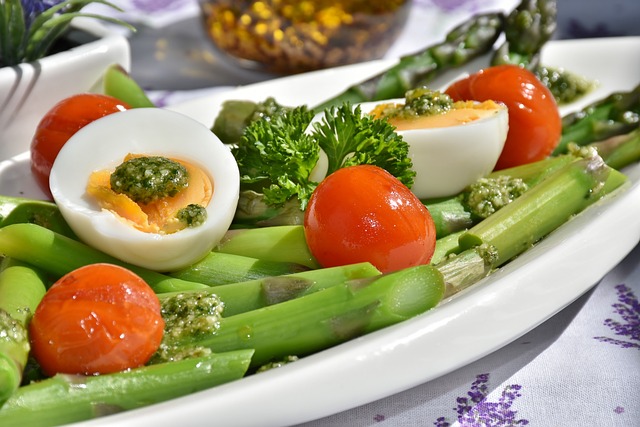
Weight loss is a journey that many people embark on, but not everyone achieves their desired results. While there are several diets and weight loss programs available, they may not work for everyone. One approach that has gained popularity in recent years is natural dieting for weight loss. This approach involves consuming whole, nutrient-dense foods that promote weight loss and overall health.
A natural diet for weight loss focuses on consuming foods that are minimally processed and free from additives, preservatives, and artificial sweeteners. This approach emphasizes the consumption of fruits, vegetables, whole grains, lean proteins, and healthy fats. These foods are rich in fiber, vitamins, minerals, and antioxidants, which can help promote weight loss, reduce inflammation, and improve overall health.
In this comprehensive guide, we will explore the principles of a natural diet for weight loss, the benefits of this approach, and practical tips for incorporating natural foods into your diet. Whether you are looking to shed a few pounds or improve your overall health, this guide will provide you with the knowledge and tools to achieve your goals naturally and sustainably.
Table of Contents
Understanding Weight Loss
The Science of Weight Loss
Losing weight is a complex process that involves many factors, including genetics, metabolism, and lifestyle. At its core, weight loss is about creating a calorie deficit, which means burning more calories than you consume. This can be achieved through a combination of diet and exercise.
When you eat food, your body converts it into energy, which is measured in calories. If you consume more calories than your body needs, the excess is stored as fat. To lose weight, you need to create a calorie deficit by burning more calories than you consume. This can be achieved by reducing your calorie intake, increasing your physical activity, or both.
Calories and Nutritional Balance
Calories are not the only factor to consider when trying to lose weight. It’s also important to focus on the nutritional quality of the foods you eat. A diet that is high in processed foods and sugar can lead to weight gain and other health problems.
To achieve a healthy weight, it’s important to consume a balanced diet that includes a variety of nutrient-dense foods, such as fruits, vegetables, whole grains, lean protein, and healthy fats. These foods provide the body with the nutrients it needs to function properly and can help promote weight loss.
In addition to focusing on the quality of the foods you eat, it’s also important to pay attention to portion sizes. Eating too much of even healthy foods can lead to weight gain. By practicing portion control and being mindful of your eating habits, you can achieve a healthy weight and improve your overall health.
Principles of a Natural Diet
Whole Foods vs. Processed Foods
A natural diet emphasizes the consumption of whole foods over processed foods. Whole foods are foods that are minimally processed or unprocessed, and are as close to their natural state as possible. Examples of whole foods include fruits, vegetables, whole grains, nuts, and seeds. Processed foods, on the other hand, are foods that have been altered in some way during processing, and often contain added sugars, fats, and preservatives. Examples of processed foods include soda, candy, chips, and fast food.
Importance of Macronutrient Balance
A natural diet also emphasizes the importance of macronutrient balance. Macronutrients are the nutrients that the body needs in large amounts, including carbohydrates, proteins, and fats. A balanced natural diet includes a variety of whole foods that provide a balance of these macronutrients. Carbohydrates should come primarily from fruits, vegetables, and whole grains, while protein should come from sources such as beans, nuts, and seeds. Healthy fats should come from sources such as avocados, nuts, seeds, and olive oil.
In summary, a natural diet emphasizes the consumption of whole foods over processed foods, and a balance of macronutrients from a variety of sources. By following these principles, individuals can achieve weight loss and overall health benefits.
Designing Your Natural Diet Plan
Setting Realistic Goals
Before starting any diet plan, it’s important to set realistic weight loss goals. The amount of weight that can be lost naturally varies from person to person and depends on several factors, such as age, gender, and physical activity level. Generally, losing 1-2 pounds per week is considered a healthy and sustainable rate of weight loss.
Personalizing Your Diet
A natural diet plan for weight loss should be personalized to fit individual needs and preferences. It’s important to include a variety of foods from all food groups to ensure adequate nutrient intake. Some key components of a natural diet plan may include:
- Whole grains such as brown rice, quinoa, and whole wheat bread
- Lean protein sources such as chicken, fish, tofu, and beans
- Plenty of fruits and vegetables
- Healthy fats such as avocados, nuts, and olive oil
It’s also important to limit intake of processed and high-fat foods, sugary drinks, and alcohol. Keeping a food journal and planning meals ahead of time can help with adherence to the diet plan.
By setting realistic goals and personalizing the diet plan, individuals can achieve sustainable weight loss through a natural and healthy approach.
Essential Foods for Weight Loss
Vegetables and Fruits
Eating a variety of vegetables and fruits can help with weight loss as they are low in calories and high in fiber, vitamins, and minerals. Some examples of vegetables and fruits that can aid in weight loss include leafy greens, broccoli, cauliflower, berries, apples, and citrus fruits.
Lean Proteins
Incorporating lean proteins into your diet can help with weight loss as they keep you feeling full and satisfied for longer periods of time. Some examples of lean proteins include chicken breast, turkey, fish, tofu, and legumes such as lentils and beans.
Healthy Fats
Contrary to popular belief, consuming healthy fats can actually aid in weight loss. Healthy fats such as avocados, nuts, seeds, and olive oil can help keep you feeling full and satisfied, as well as improve heart health.
Whole Grains
Incorporating whole grains into your diet can help with weight loss as they are high in fiber and keep you feeling full for longer periods of time. Some examples of whole grains include brown rice, quinoa, whole wheat bread, and oats.
By incorporating these essential foods into your diet, you can improve your chances of successful weight loss.
Meal Planning and Preparation
Creating a Weekly Menu
Creating a weekly menu is an essential step in natural weight loss. It helps to ensure that you have a balanced diet, and it also prevents you from making impulsive food choices. When creating a weekly menu, it is important to include a variety of nutrient-dense foods such as fruits, vegetables, whole grains, lean proteins, and healthy fats. You can also include healthy snacks to keep you satisfied between meals.
Shopping for Ingredients
Shopping for ingredients is another crucial step in meal planning and preparation. It is important to choose fresh, whole foods and avoid processed foods. When shopping, make a list of the ingredients you need for your weekly menu to avoid buying unnecessary items. You can also consider buying in bulk to save money.
Meal Prep Techniques
Meal prep techniques can save you time and make it easier to stick to your natural weight loss plan. You can prepare meals in advance and store them in the fridge or freezer for later use. You can also chop vegetables and fruits in advance to save time during meal preparation. Additionally, you can use a slow cooker or pressure cooker to cook meals in bulk, which can be stored and reheated throughout the week.
Overall, meal planning and preparation can help you achieve natural weight loss by ensuring that you have a balanced diet and avoiding impulsive food choices. By creating a weekly menu, shopping for fresh ingredients, and using meal prep techniques, you can make healthy eating a part of your lifestyle.
Incorporating Exercise
Regular exercise is an essential component of any weight loss plan. It helps to burn calories, build muscle, and increase metabolism. Incorporating different types of exercise can help achieve maximum weight loss results.
Cardiovascular Activities
Cardiovascular activities are exercises that increase heart rate and improve overall cardiovascular health. These activities include running, cycling, swimming, and brisk walking. Cardiovascular activities are effective for burning calories and improving overall fitness.
Strength Training
Strength training involves lifting weights or using resistance bands to build muscle. Building muscle helps to increase metabolism and burn more calories. It is important to start with lighter weights and gradually increase the weight as strength improves.
Flexibility and Balance Exercises
Flexibility and balance exercises are important for overall health and injury prevention. These exercises include yoga, Pilates, and stretching. They help to improve flexibility, balance, and posture.
Incorporating a variety of exercises is key to achieving weight loss goals. It is important to consult with a healthcare professional before starting any exercise program.
Monitoring Progress
Tracking Your Diet
Keeping track of what you eat can be a helpful tool for weight loss. By tracking your diet, you can identify problem areas and make changes to your eating habits. There are several ways to track your diet, including:
- Writing down what you eat in a food journal
- Using a mobile app to track your food intake
- Keeping a mental note of what you eat throughout the day
No matter which method you choose, consistency is key. Try to track your diet every day to get an accurate picture of your eating habits.
Measuring Weight Loss
Measuring your weight loss progress is another important aspect of monitoring your weight loss journey. While stepping on the scale can be intimidating, it can also be a helpful tool for tracking your progress. Here are some tips for measuring weight loss:
- Weigh yourself at the same time every day, preferably in the morning before eating or drinking
- Use a reliable scale that measures weight accurately
- Track your weight loss progress in a journal or mobile app
Remember that weight loss is not always linear, and there may be fluctuations in your weight from day to day. Focus on the overall trend over time rather than day-to-day changes.
By tracking your diet and measuring your weight loss progress, you can stay on track and make adjustments as needed to reach your weight loss goals.
Overcoming Challenges
Dealing with Plateaus
Plateaus are a natural part of any weight loss journey. When weight loss stalls, it can be frustrating and demotivating. However, it’s important to remember that plateaus are normal and temporary. To overcome a plateau, try changing up your exercise routine or reducing your calorie intake. It’s also important to track your progress and celebrate non-scale victories, such as increased energy or improved sleep.
Managing Cravings
Cravings can be a major challenge when trying to stick to a natural diet for weight loss. To manage cravings, try keeping healthy snacks on hand, such as nuts or vegetables. It’s also important to stay hydrated and get enough sleep, as hunger and cravings can be exacerbated by dehydration and lack of sleep. If cravings persist, try practicing mindfulness techniques to help manage stress and emotional eating.
Staying Motivated
Staying motivated can be difficult when progress is slow or when faced with obstacles. To stay motivated, try setting small, achievable goals and celebrating each accomplishment. It’s also important to find a support system, whether it’s a friend or family member, a support group, or a professional. Finally, remember to focus on the positive changes that come with a natural diet, such as improved health and increased energy.
Sustaining a Healthy Lifestyle
Adapting to Life Changes
Maintaining a healthy lifestyle can be challenging, especially when faced with changes in routine or environment. However, adapting to these changes is crucial to sustain a natural diet for weight loss. Here are some tips to help adapt to life changes:
- Plan ahead: Before embarking on a trip or starting a new job, plan ahead by researching healthy food options and creating a meal plan.
- Stay active: Incorporate physical activity into daily routines, such as taking the stairs instead of the elevator or going for a walk during lunch breaks.
- Seek support: Join a support group or enlist the help of friends and family to stay motivated and accountable.
- Be flexible: Allow for flexibility in dietary choices and exercise routines to accommodate unexpected changes.
Long-Term Diet Maintenance
Maintaining a natural diet for weight loss is not a short-term solution, but rather a long-term lifestyle change. Here are some tips to help sustain a healthy diet:
- Eat a variety of foods: Incorporate a variety of fruits, vegetables, whole grains, lean proteins, and healthy fats into daily meals.
- Practice portion control: Use smaller plates, measure serving sizes, and avoid eating until feeling overly full.
- Stay hydrated: Drink plenty of water throughout the day to help with digestion and overall health.
- Limit processed foods: Avoid processed foods high in sugar, salt, and unhealthy fats.
- Be mindful: Pay attention to hunger and fullness cues, and avoid eating while distracted.
By adapting to life changes and maintaining healthy habits, individuals can sustain a natural diet for weight loss and achieve long-term success.
Frequently Asked Questions
What are the most effective natural foods for weight loss?
Some of the most effective natural foods for weight loss include fruits, vegetables, whole grains, lean protein sources, and healthy fats. These foods are low in calories and high in nutrients, which can help you feel full and satisfied while also supporting your overall health.
How can I lose weight quickly and permanently through diet?
Losing weight quickly and permanently through diet requires a combination of healthy eating habits, regular exercise, and lifestyle changes. It’s important to focus on whole, nutrient-dense foods, limit processed and high-calorie foods, and find physical activities that you enjoy and can stick to long-term.
What does a 7-day natural weight loss meal plan look like?
A 7-day natural weight loss meal plan might include meals and snacks that are rich in fruits, vegetables, whole grains, lean protein sources, and healthy fats. Some examples include oatmeal with berries and nuts for breakfast, a salad with grilled chicken for lunch, and roasted vegetables with quinoa for dinner.
Which foods are scientifically proven to help burn belly fat?
There is no single food that can target belly fat specifically, but some foods that may help support weight loss and overall health include leafy greens, berries, nuts and seeds, lean protein sources, and healthy fats like avocado and olive oil.
Can you explain the 30/30/30 rule in the context of diet and weight loss?
The 30/30/30 rule is a general guideline for balanced meals that includes 30% protein, 30% complex carbohydrates, and 30% healthy fats. This balance can help support weight loss, as well as overall health and energy levels.
What are some success stories of weight loss through a natural diet?
There are many success stories of weight loss through a natural diet, including individuals who have lost significant amounts of weight and improved their overall health through healthy eating habits and lifestyle changes. However, it’s important to remember that everyone’s journey is unique and individual results may vary.

